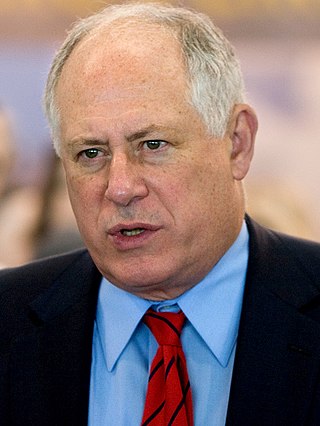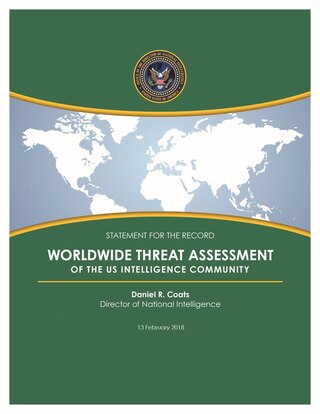
The United States Office of Personnel Management (OPM) is an independent agency of the United States government that manages the United States federal civil service. The agency provides federal human resources policy, oversight, and support, and tends to healthcare (FEHB), life insurance (FEGLI), and retirement benefits for federal government employees, retirees, and their dependents.

The government of the City of Chicago, Illinois, United States is divided into executive and legislative branches. The Mayor of Chicago is the chief executive, elected by general election for a term of four years, with no term limits. The mayor appoints commissioners and other officials who oversee the various departments. In addition to the mayor, Chicago's two other citywide elected officials are the City Clerk and the City Treasurer.

The San Francisco Municipal Transportation Agency is an agency created by consolidation of the San Francisco Municipal Railway (Muni), the Department of Parking and Traffic (DPT), and the Taxicab Commission. The agency oversees public transport, taxis, bicycle infrastructure, pedestrian infrastructure, and paratransit for the City and County of San Francisco.

Patrick Joseph Quinn Jr. is an American politician who served as the 41st governor of Illinois from 2009 to 2015. A Democrat, Quinn began his career as an activist by founding the Coalition for Political Honesty. He was elected lieutenant governor in 2002 and served under governor Rod Blagojevich, and as of 2024 he is the most recent male to serve as Illinois's Lieutenant Governor.

The Commission on Elections, abbreviated as COMELEC, is one of the three constitutional commissions of the Philippines. Its principal role is to enforce all laws and regulations relative to the conduct of elections in the Philippines.

The secretary of state is an official in the state governments of 47 of the 50 states of the United States, as well as Puerto Rico and other U.S. possessions. In Massachusetts, Pennsylvania, and Virginia, this official is called the secretary of the commonwealth. In states that have one, the secretary of state is the chief administrative officer of the state and is often the primary custodian of important state records. In the states of Alaska, Hawaii, and Utah, there is no secretary of state; in those states many duties that a secretary of state might normally execute fall within the domain of the lieutenant governor. Like the lieutenant governor, in most states, the secretary of state is in the line of succession to succeed the governor, in most cases immediately behind the lieutenant governor. In three states with no lieutenant governor as well as the U.S. territory of Puerto Rico, the secretary of state is first in the line of succession in the event of a gubernatorial vacancy.

Elections in Illinois provide for the election of over 40,000 elected seats across over 6,000 units of government.
The University of Illinois clout scandal resulted from a series of articles in the Chicago Tribune that reported that some applicants to the University of Illinois at Urbana–Champaign (UIUC) "received special consideration" for acceptance between 2005 and 2009, despite having sub-par qualifications. The series began on May 29, 2009. An investigatory committee appointed by Illinois governor Pat Quinn was formed a few weeks later. The controversy led to the resignation of B. Joseph White, president of the University of Illinois, who oversaw the three campuses in the university system, and Richard Herman, chancellor of UIUC. The scandal eventually spread to include evidence of graft by members of the Board of Trustees, resulting in the resignation of seven of the nine members.
The Office of Personnel Management data breach was a 2015 data breach targeting Standard Form 86 (SF-86) U.S. government security clearance records retained by the United States Office of Personnel Management (OPM). One of the largest breaches of government data in U.S. history, the attack was carried out by an advanced persistent threat based in China, widely believed to be the Jiangsu State Security Department, a subsidiary of the Government of China's Ministry of State Security spy agency.
The Capital Development Board (CDB) is an independent agency of the U.S. state of Illinois. The CDB, as an acronym, refers both to the seven-member bipartisan board of directors and to the agency that it oversees. The members of the CDB, who are appointed by the Governor of Illinois, in turn appoint an executive director who is responsible for the day-to-day management of the agency. The agency is headquartered in the state capital of Springfield, with a second headquarters in Chicago.
On March 27, 2016, hackers under the banner "Anonymous Philippines" hacked into the website of the Philippine Commission on Elections (COMELEC) and defaced it. The hackers left a message calling for tighter security measures on the vote counting machines (VCM) to be used during the 2016 Philippine general election on May 9. Within the day a separate group of hackers, LulzSec Pilipinas posted an online link to what it claims to be the entire database of COMELEC and updated the post to include three mirror link to the index of the database's downloadable files. The leaked files by LulzSec Pilipinas amounts to 340 gigabytes.
The Democratic National Committee cyber attacks took place in 2015 and 2016, in which two groups of Russian computer hackers infiltrated the Democratic National Committee (DNC) computer network, leading to a data breach. Cybersecurity experts, as well as the U.S. government, determined that the cyberespionage was the work of Russian intelligence agencies.

The Arizona Superintendent of Public Instruction is an elected state executive position in the Arizona state government. The superintendent oversees the state of Arizona's public school system and directs the state's Department of Education.

The Russian government conducted foreign electoral interference in the 2016 United States elections with the goals of sabotaging the presidential campaign of Hillary Clinton, boosting the presidential campaign of Donald Trump, and increasing political and social discord in the United States. According to the U.S. intelligence community, the operation—code named Project Lakhta—was ordered directly by Russian president Vladimir Putin. The "hacking and disinformation campaign" to damage Clinton and help Trump became the "core of the scandal known as Russiagate". The 448-page Mueller Report, made public in April 2019, examined over 200 contacts between the Trump campaign and Russian officials but concluded that there was insufficient evidence to bring any conspiracy or coordination charges against Trump or his associates.

The United States Intelligence Community concluded in early 2018 that the Russian government was continuing the interference it started during the 2016 elections and was attempting to influence the 2018 United States mid-term elections by generating discord through social media. Primaries for candidates of parties began in some states in March and would continue through September. The leaders of intelligence agencies have noted that Russia is spreading disinformation through fake social media accounts in order to divide American society and foster anti-Americanism.
Election cybersecurity or election security refers to the protection of elections and voting infrastructure from cyberattack or cyber threat – including the tampering with or infiltration of voting machines and equipment, election office networks and practices, and voter registration databases.

Assessing Russian Activities and Intentions in Recent US Elections is a report issued by the United States Office of the Director of National Intelligence (ODNI) that assessed the extent and basis of Russia's interference in United States' elections in 2016. Published on January 6, 2017, the report includes an assessment by the National Security Agency, the Central Intelligence Agency, and the Federal Bureau of Investigation of the type and breadth of actions undertaken by Russia and affiliated elements during the elections. The report examines Russia's utilization of cyberspace such as hacking and the use of internet trolls and bots, and an intensive media campaign to influence public opinion in the United States. Additionally, it analyzes Russia's intentions and motivations in regards to their influence campaign. Issued in two forms, a classified version and a declassified version, the report drew its conclusions based on highly classified intelligence, an understanding of past Russian actions, and sensitive sources and methods.

The Virginia Department of Elections (ELECT)is an agency that administers elections in Virginia. Its duties include maintaining a voter registration system, ensuring fair and secure elections, overseeing campaign finance disclosure, and certificating voter equipment in coordination with Virginia's 113 local election offices.
Between May and July 2017, American credit bureau Equifax was breached. Private records of 147.9 million Americans along with 15.2 million British citizens and about 19,000 Canadian citizens were compromised in the breach, making it one of the largest cybercrimes related to identity theft. Equifax discovered the breach end of July, but did not disclose it to the public until September 2017. In a settlement with the United States Federal Trade Commission, Equifax offered affected users settlement funds and free credit monitoring.
Sergei Mikhailov was deputy head of the FSB security agency’s Center for Information Security. In February 2019, he was sentenced to 22 years in prison for treason.











